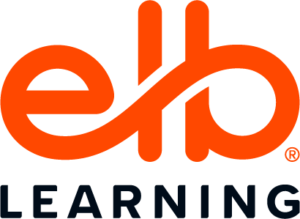3 Strategies For Successfully Working With Your SME
SMEs have the knowledge, skills, technical information, and raw material needed to form the basis of content. An SME’s real-world experience, practical examples, and personal anecdotes help make your content resonate with learners. However, it’s easy to turn working with a Subject Matter Expert into a battle of wills. You want elegant, simple content that distills information down into its most essential parts. Whereas often, a Subject Matter Expert wants to include, well, everything. After all, this is the topic they’re an expert on, and they want to share that knowledge.
Before you start shouting “It’s my way or the highway!” or “Instructional Designers know best,” take a moment to breathe. And then, follow a few time-honored strategies for collaboration and communication with Subject Matter Experts.
1. Practice Active Listening And Avoid Assumptions
It’s easy to assume that your SME will be on the same page as you. You both want the same thing, right? An effective eLearning course. This is an example of cognitive bias. First defined by psychologists in 1977, the false consensus effect refers to people’s tendency to assume that others share their beliefs and will behave similarly in a given context.
How can you avoid falling into this trap? Practice active listening techniques to make sure you’re fully understanding what your SME is telling you. Get to know them so you can understand where they are coming from when they present a different perspective than you. Active listening means making a conscious effort to hear not only the words that your SME is saying but also, the complete message being communicated.
You should be focusing on the words and their context and showing verbal and nonverbal signs of listening. To ensure you’re correctly understanding, make an effort to reflect on what has been said by paraphrasing:
- "What I'm hearing is..."
- "Sounds like you’re saying..."
Ask questions to clarify certain points:
- "What do you mean when you say the course should include interactivity?”
- "Is this what you mean by animated graphics?"
You can also summarize your SME’s comments throughout the conversation to ensure you’re not missing anything. As you’re conversing, try to ask open-ended questions; these will yield more information than yes or no questions.
2. Set Clear Expectations
Lay down some ground rules for communication methods and workflows. Setting the expectations with your SME before the project begins can prevent serious headaches later. Talk about communication preferences and compromise on something that works well for both of you—and then stick to it. If you say all project updates will be done via email, don’t start texting updates two weeks in.
Agree on a set number of review cycles. Nothing drags a project out like infinite rounds of reviews and changes. Remember, “done is better than perfect” in most cases. Get the SME’s buy-in and write a schedule with agreed-upon review dates. Using an easy-to-use review tool like ReviewLink® can help with the review process.
Record meeting notes in a shared document to avoid misunderstandings. Clear communication is key! But remember, collaboration is a two-way street. You both will have to compromise on different points to keep the project moving smoothly.
3. Provide Examples Of Courses
Your Subject Matter Expert might have little to no familiarity with the type of eLearning course you’re hoping to create. Perhaps their only experiences with training courses have been dreary mandatory anti-harassment training modules each year. It’s up to you to show them the light! Part of building a good relationship with your SME means educating them on the possibilities, and benefits, of online learning.
Show them the different learning modes your final project could take: games and simulations, Virtual Reality, mobile, video, microlearning, etc. [1]. Seeing examples will help make the project feel more “real” to your SME and give them a framework for asking questions or sharing ideas on how to present their content in your final course.
This is also your chance to show off your instructional knowledge and explain why certain learning methods work better than others for the type of training you need to deliver. You don’t need to get too into the weeds, but sharing concrete training examples and the why behind each one will show your SME that you’re an expert too. Mutual respect is the secret to a successful partnership. Once you’ve developed a harmonious relationship with your Subject Matter Expert, you can create a training course that rocks!


